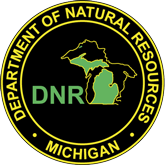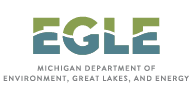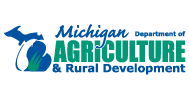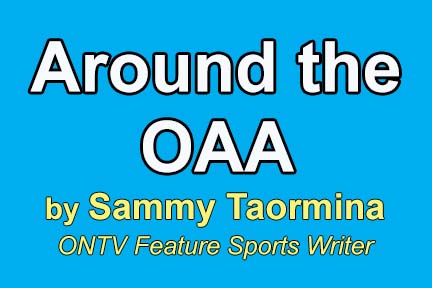| The following news release was issued earlier this week by Michigan State University Extension.
Contact: Kelsey Bockelman or Paige Filice, Michigan State University Extension
$35,000 is available for Michigan organizations dedicated to aquatic invasive species education and outreach.
For the fourth year running, the Michigan Clean Boats, Clean Waters program has grant funding available to support aquatic invasive species outreach efforts. This opportunity is for Michigan organizations dedicated to the protection of our waterways including lake associations, local units of government, and non-profit organizations. This year, up to $35,000 is available to engage the Michigan boating community in invasive species prevention actions.
 Funding requests can be up to $3,000 each and do not require local match or cost sharing. Clean Boats, Clean Waters grants can be used for a variety of activities including signage, invasive species supplies such as plant removal tools, sponges and towels, and staff time to perform watercraft inspections and demonstrations of boat cleaning techniques. Eligible applicants include lake associations, watershed groups, local or tribal units of government and non-profits. Cooperative Invasive Species Management Areas (CISMAs) and organizations with a statewide impact are highly encouraged to support local groups or pursue Michigan Invasive Species Grant Program funds to perform boater outreach activities. Funding requests can be up to $3,000 each and do not require local match or cost sharing. Clean Boats, Clean Waters grants can be used for a variety of activities including signage, invasive species supplies such as plant removal tools, sponges and towels, and staff time to perform watercraft inspections and demonstrations of boat cleaning techniques. Eligible applicants include lake associations, watershed groups, local or tribal units of government and non-profits. Cooperative Invasive Species Management Areas (CISMAs) and organizations with a statewide impact are highly encouraged to support local groups or pursue Michigan Invasive Species Grant Program funds to perform boater outreach activities.
Interested groups can apply for a grant now on the Clean Boats, Clean Waters website. The deadline to apply is January 19, 2024. This is a competitive funding opportunity and complete applications will be ranked based on group eligibility, project significance, anticipated outcomes, and target audiences. Accepted grantees will be notified in March of their award. |
Over the last three years Clean Boats, Clean Waters has awarded 31 grants to lake associations, watershed groups, high schools, local units of government, and nonprofit organizations to educate the public about aquatic invasive species. Below are some examples of their projects.
- The Elk-Skegemog Lakes Association, located at the tripoint of Antrim, Grand Traverse, and Kalkaska Counties, installed Clean Boats, Clean Waters Decontamination Station signs and distributed education materials around Elk and Skegemog Lakes. The lake association hosted invasive species education events and partnered with the Tip of the Mitt Watershed Council to host boat washing demonstrations.
- The Alger Conservation District, in partnership with the Lake to Lake Cooperative Invasive Species Management Area and Burt and Au Train Townships, installed interpretive signs at public boat and kayak launches on the Au Train River and at the Burt Township Marina. In addition, a Clean Boats, Clean Waters Decontamination Station sign was installed at the marina for residents and visitors. The Conservation District and partners also hosted outreach events to educate the public about relevant invasive species and conducted boat and kayak decontamination demonstrations.
- The Kalkaska Conservation District partnered with Coldsprings Township and Manistee Lake Association to install a Clean Boats, Clean Waters Decontamination Station sign and display educational messaging near the boat launch at Manistee Lake Sands Park. In addition, the Conservation District sponsored paid advertising about clean boating practices in local media and hosted outreach events during busy weekends.
Michigan Clean Boats, Clean Waters Program
Michigan State University Extension is leading the effort to implement the Clean Boats, Clean Waters program in cooperation with the Michigan Department of Environment, Great Lakes and Energy. Since 2006 the Clean Boats, Clean Waters program has been educating Michigan boaters about aquatic invasive species with trained volunteer boat inspectors. The program has grown into a comprehensive aquatic invasive species boater outreach program thanks to funding from EGLE.
Clean Boats, Clean Waters promotes understanding of boat cleaning practices and regulations through the distribution of educational materials, an online resource library, boat washing demonstrations, grants, and partnerships. The program builds upon existing partnerships with statewide and local organizations including the Michigan Lakes and Streams Association, CISMAs, and lake associations and is actively seeking new opportunities and partners to share the clean, drain, dry message.
More information on Clean Boats, Clean Waters can be found on the MSU Extension website, Facebook (@MichiganCBCW), or Instagram (@michigan_cbcw).
Questions about the Clean Boats, Clean Waters program and this grant funding opportunity can be directed to Kelsey Bockelman.

Michigan’s Invasive Species Program is cooperatively implemented by the Michigan Departments of Agriculture and Rural Development; Environment, Great Lakes, and Energy; and Natural Resources.
Note to editors: Accompanying photos are available below for download. Caption information follows.
High school: 2022 grantees show off parts of their grant projects from a few summers ago! East Jordan High School (Left) displays their new aquatic invasive species decontamination sign. Photo Credit: East Jordan High School.
Grant: CBCW grant announcement infographic available for use in publications or social media. Courtesy of MSU Extension. |
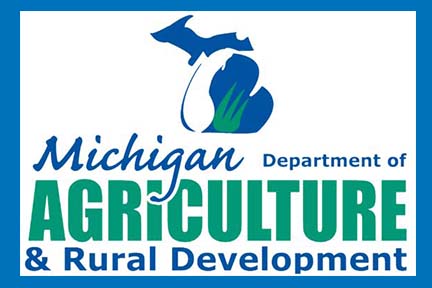
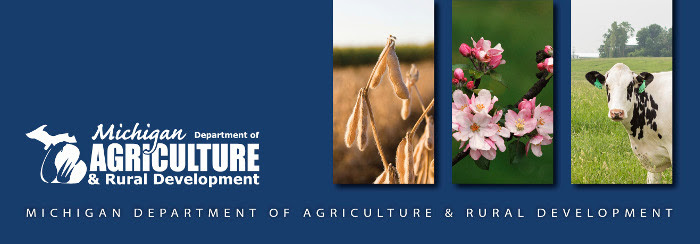

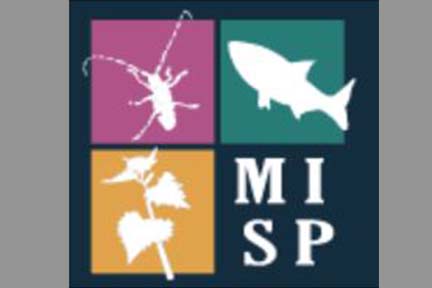

 Funding requests can be up to $3,000 each and do not require local match or cost sharing. Clean Boats, Clean Waters grants can be used for a variety of activities including signage, invasive species supplies such as plant removal tools, sponges and towels, and staff time to perform watercraft inspections and demonstrations of boat cleaning techniques. Eligible applicants include lake associations, watershed groups, local or tribal units of government and non-profits. Cooperative Invasive Species Management Areas (CISMAs) and organizations with a statewide impact are highly encouraged to support local groups or pursue
Funding requests can be up to $3,000 each and do not require local match or cost sharing. Clean Boats, Clean Waters grants can be used for a variety of activities including signage, invasive species supplies such as plant removal tools, sponges and towels, and staff time to perform watercraft inspections and demonstrations of boat cleaning techniques. Eligible applicants include lake associations, watershed groups, local or tribal units of government and non-profits. Cooperative Invasive Species Management Areas (CISMAs) and organizations with a statewide impact are highly encouraged to support local groups or pursue 
